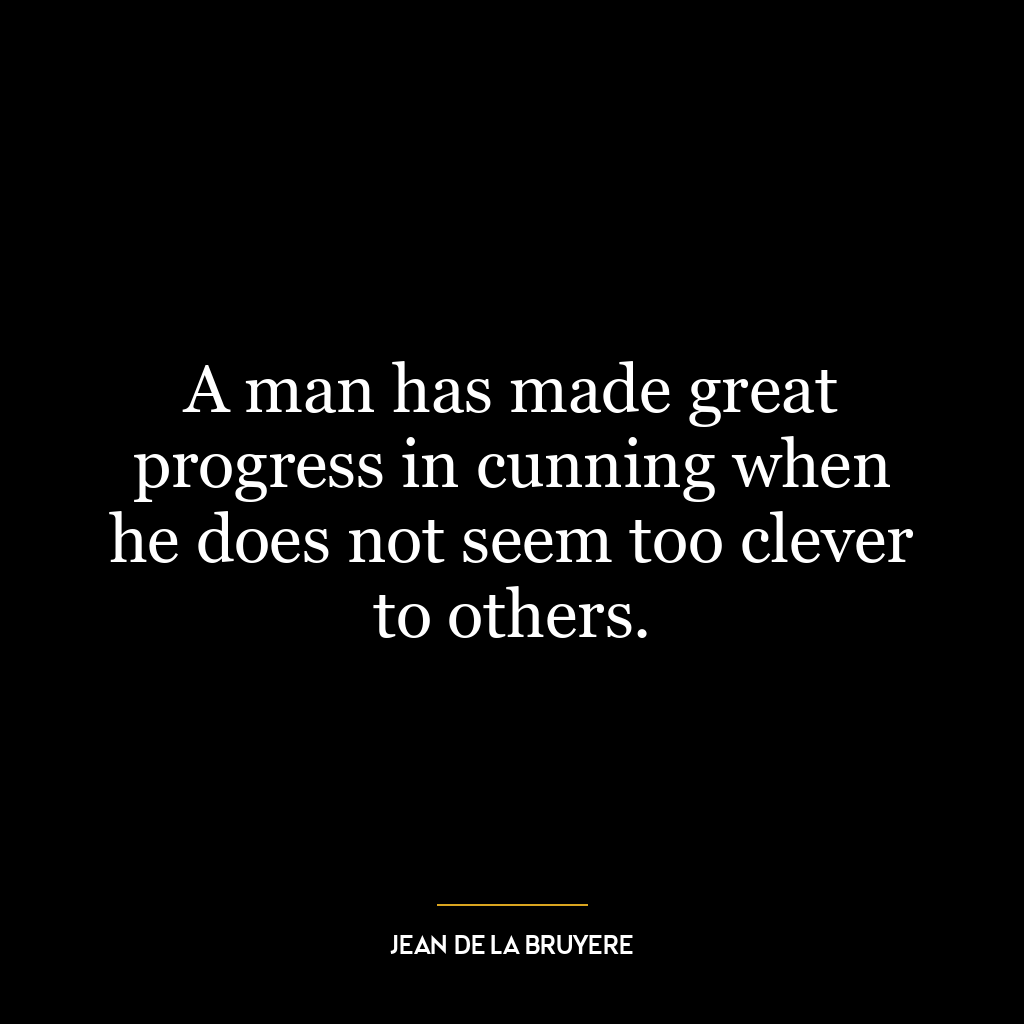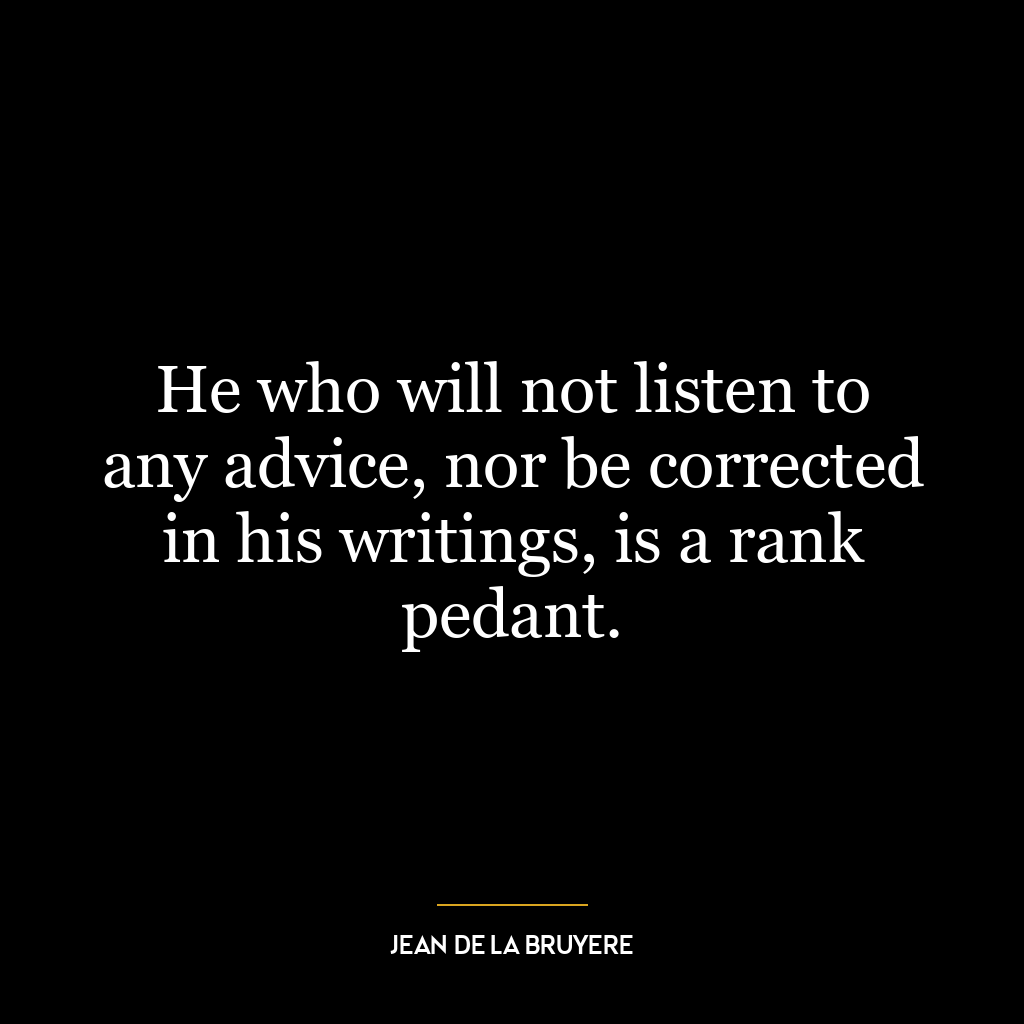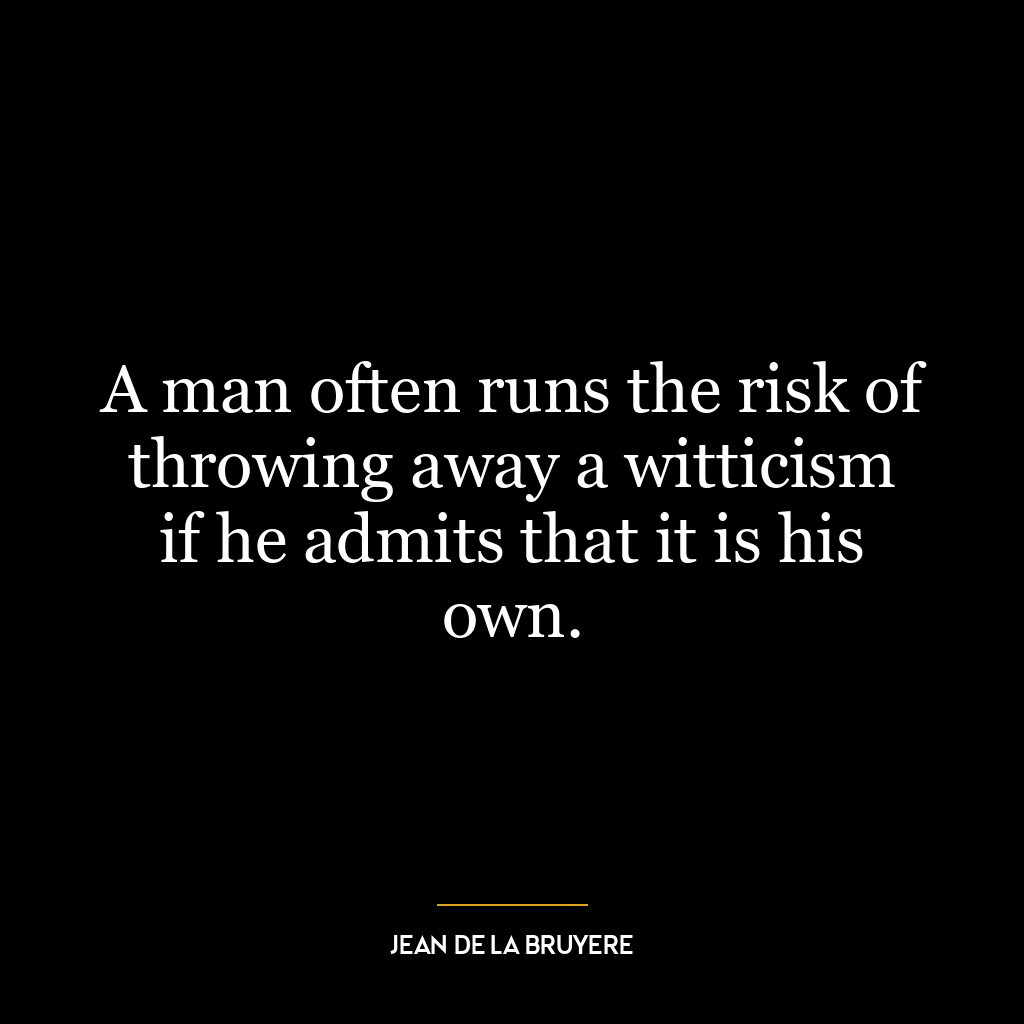To me the thought of oneself as low and humble is a sin and ignorance.
This quote suggests that self-deprecation, or the act of undervaluing oneself, is both a sin and a form of ignorance. The term “sin” here implies an act against one’s own nature or potential, while “ignorance” refers to a lack of understanding or awareness about one’s true worth. Essentially, the quote emphasizes the importance of self-esteem and self-worth, suggesting that seeing oneself as inferior is not only detrimental but also misinformed.
The statement provides an interesting perspective on humility. It suggests that humility should not be mistaken for lowliness or inferiority. While it’s important to remain humble in interactions with others and in acknowledging our limitations, this should never translate into viewing ourselves as less valuable or capable than we truly are.
In today’s world where social comparison is commonplace due to social media and societal pressures, this idea holds significant relevance. It serves as a reminder to individuals to value themselves highly despite external influences that may suggest otherwise. In terms of personal development, it encourages people to foster healthy self-esteem and confidence.
This does not mean promoting arrogance but rather recognizing individual strengths and capabilities while working on weaknesses without letting them define your worth. It calls for introspection – understanding one’s abilities accurately without underestimating them.
Moreover, in professional settings like workplaces where competition can often lead individuals into doubting their abilities compared to others’, this philosophy can help maintain positive self-regard which leads towards better performance outcomes.
Therefore “To me the thought of oneself as low and humble is a sin and ignorance.” promotes maintaining high regard for oneself irrespective of external circumstances – an idea which when applied can greatly enhance personal growth in today’s world.











